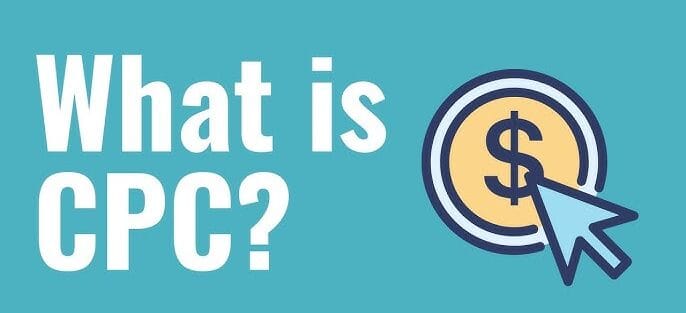Cost Per Click (CPC) stands out as a critical metric that shapes advertising strategies. But what exactly is CPC, and why is it so important to marketers? Whether you’re managing Google Ads campaigns, strategizing Facebook marketing, or simply exploring effective ways to reach your target audience, understanding CPC can unlock the true potential of your advertising budget.
This guide dives deep into the concept of CPC, breaking it down into digestible sections, and offering practical tips to make your campaigns more efficient and impactful.
What Is CPC? The Basics of Cost Per Click Advertising
Cost Per Click (CPC) is an online advertising pricing model where advertisers are charged only when someone clicks on their ad. Unlike models like Cost Per Mille (CPM), which bills advertisers for every 1,000 impressions regardless of engagement, CPC focuses solely on measurable interaction—clicks that could lead to conversions.
Key Features of CPC:
- Advertisers only pay for actual engagement (clicks).
- Ideal for driving traffic to websites, generating leads, or encouraging specific actions.
- Works effectively across platforms like Google Ads, Facebook, and Instagram.
CPC is often synonymous with Pay-Per-Click (PPC), a model familiar to anyone running campaigns on Google Ads or social media platforms.
How Does CPC Work? A Closer Look
CPC campaigns operate through a bidding system. Advertisers set a maximum bid for how much they’re willing to pay per click. The platform (e.g., Google Ads) evaluates these bids using algorithms that factor in ad quality, keyword relevance, and competitive bids.
Step-by-Step Process of CPC Advertising
- Setting a Budget: Advertisers decide their daily or total campaign budget.
- Keyword Targeting: Keywords relevant to the product or service are selected.
- Bidding: A maximum bid per click is determined.
- Ad Placement: The platform ranks ads based on bids, Quality Scores, and relevance.
- Billing: Advertisers are charged when a user clicks their ad.
For example, an ad with a $0.50 CPC and 1,000 clicks would cost $500.
Why Is CPC Important?
CPC offers unparalleled insights into the effectiveness of a campaign by focusing on direct engagement. Here’s why marketers rely on it:
1. Budget Control
CPC campaigns allow advertisers to set clear limits, ensuring they only pay for performance. This makes CPC especially useful for small businesses and startups in Sri Lanka looking to optimize limited advertising budgets.
2. Measurable Results
Clicks indicate user interest, providing concrete data to measure ad success. Platforms like Google Ads and Facebook offer detailed analytics to refine strategies further.
3. Strategic Insights
Tracking CPC helps identify trends, optimize keywords, and enhance ad relevance, leading to higher returns on investment (ROI).
How to Calculate CPC
The formula for calculating CPC is simple:
CPC = Total Campaign Cost ÷ Total Clicks
For instance, if your campaign cost $200 and generated 500 clicks, your CPC is $0.40.
Pro Tip: Platforms like Google Ads provide real-time CPC calculations, helping you adjust bids and strategies dynamically.
How to Lower Your CPC and Boost ROI
Reducing your CPC is essential for maximizing ROI. Here’s how you can achieve this:
1. Improve Your Quality Score
Google Ads assigns a Quality Score based on:
- Click-Through Rate (CTR): Higher CTR indicates better relevance.
- Ad Relevance: Ensure your ad matches the user’s search intent.
- Landing Page Experience: A seamless, fast-loading page tailored to user needs boosts Quality Score.
2. Keyword Optimization
- Use keyword research tools to identify high-value, low-competition keywords.
- Group keywords into tightly themed ad groups for better targeting.
- Continuously monitor and adjust your keyword strategy.
3. Test and Refine Ads
Experiment with different ad formats, headlines, and call-to-action (CTA) phrases to find the most effective combination.
4. Target Specific Audiences
Platforms like Facebook allow granular targeting based on demographics, interests, and behaviors. By focusing on relevant audiences, you can increase clicks while reducing wasted spend.
CPC vs. CPM: Which Is Better?
The choice between CPC and CPM depends on your campaign goals:
| Metric | CPC | CPM |
|---|---|---|
| Objective | Drive traffic and conversions | Increase brand awareness |
| Cost | Higher per interaction | Lower per impression |
| Effectiveness | Best for measurable engagement | Best for broad visibility |
Use Case Example:
A Sri Lankan e-commerce store launching a flash sale may choose CPC to drive immediate traffic, while a clothing brand building awareness for a new collection may prefer CPM.
CPC Advertising Platforms: Choosing the Right Fit
1. Google Ads
The most widely used platform, Google Ads, offers access to billions of searches daily. Its AdSense program also enables content publishers to monetize their websites.
2. Facebook and Instagram Ads
Meta’s advertising ecosystem excels in detailed audience targeting, allowing businesses in Sri Lanka to connect with specific user segments.
3. Other Alternatives
- Media.net: A strong competitor to AdSense.
- Amazon Advertising: Ideal for e-commerce retailers.
Real-Life Example of CPC Success
Consider a Sri Lankan travel agency promoting holiday packages. Using Google Ads, they targeted keywords like “Sri Lanka beach vacations.” Their campaign achieved a 6% CTR, with a $0.80 CPC, generating $5,000 in sales from a $400 ad spend.
The Role of CPC in Modern Marketing
CPC has revolutionized how businesses approach advertising, offering a direct and measurable path to engage potential customers. By understanding the nuances of CPC, optimizing campaigns, and leveraging platforms like Google and Facebook, marketers can maximize their advertising efforts while minimizing costs.
Whether you’re a seasoned advertiser or a small business in Sri Lanka exploring digital marketing, CPC remains a cornerstone of successful campaigns, driving results that resonate with your audience.
So, are you ready to unlock the full potential of CPC advertising? Start optimizing today and watch your clicks transform into tangible business outcomes.




